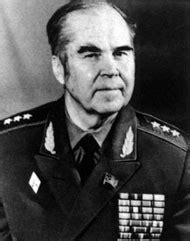A Quote by Jerry Saltz
It is not possible to overstate the influence of Paul Cezanne on twentieth-century art. He's the modern Giotto, someone who shattered one kind of picture-making and invented a new one that the world followed.
Related Quotes
Film is more than the twentieth-century art. It's another part of the twentieth-century mind. It's the world seen from inside. We've come to a certain point in the history of film. If a thing can be filmed, the film is implied in the thing itself. This is where we are. The twentieth century is on film. You have to ask yourself if there's anything about us more important than the fact that we're constantly on film, constantly watching ourselves.
What interests me is to paint the kind of antisensitivity that impregnates modern civilization. I think art since Cezanne has become extremely romantic and unrealistic, feeding on art. It is Utopian. It has less and less to do with the world. It looks inward - neo-Zen and all that. Pop Art looks out into the world. It doesn't look like a painting of something, it looks like the thing itself.
It's quite possible we may actually be looking at some kind of super-sanity here. A brilliant new modification of human perception, more suited to urban life at the end of the twentieth century...He creates himself each day. He sees himself as the lord of misrule and the world as a theatre of the absurd.
The tall building, concentrating man in one place more densely than ever before, similarly concentrates the dilemma of our public architecture at the end of the twentieth century: whether the new forms made possible by technology are doomed by the low calculations of modern patrons and their architects.
One of the major changes in attitude that occurred in the world of art as we moved from the nineteenth into the twentieth century was that the twentieth century artist became more involved with personal expression than with celebrating exclusively the values of the society or the church. Along with this change came a broader acceptance of the belief that the artist can invent a reality that is more meaningful than the one that is literally given to the eye. I subscribe enthusiastically to this.
Today's Uncle Tom doesn't wear a handkerchief on his head. This modern, twentieth-century Uncle Thomas now often wears a top hat. He's usually well-dressed and well-educated. He's often the personification of culture and refinement. The twentieth-century Uncle Thomas sometimes speaks with a Yale or Harvard accent. Sometimes he is known as Professor, Doctor, Judge, and Reverend, even Right Reverend Doctor. This twentieth-century Uncle Thomas is a professional Negro -by that I mean his profession is being a Negro for the white man.
The idea that Christianity is basically a religion of moral improvement... has its roots in the liberal Protestantism of the late nineteenth century and early twentieth century... It is this stereotype which continues to have influence today... But then came the First World War... What had gone wrong was that the idea of sin had been abandoned by liberal Christianity as some kind of unnecessary hangover from an earlier and less enlightened period in Christian history.
The mark of the modern world is the imagination of its profiteers and the counter-assertiveness of the oppressed. Exploitation and the refusal to accept exploitation as either inevitable or just constitute the continuing antinomy of the modern era, joined together in a dialectic which has far from reached its climax in the twentieth century.




































